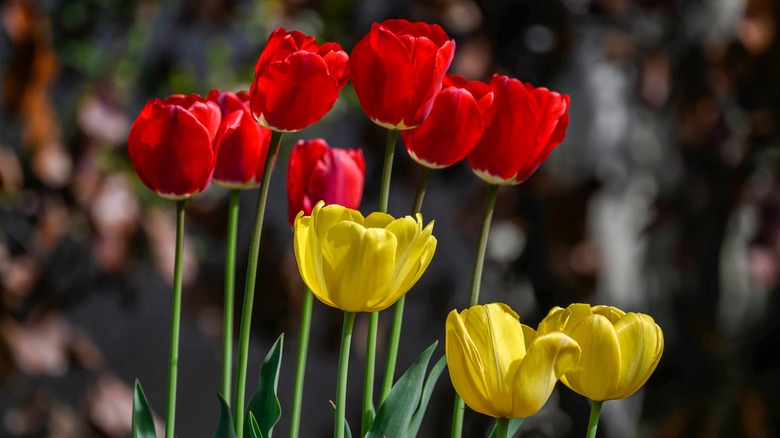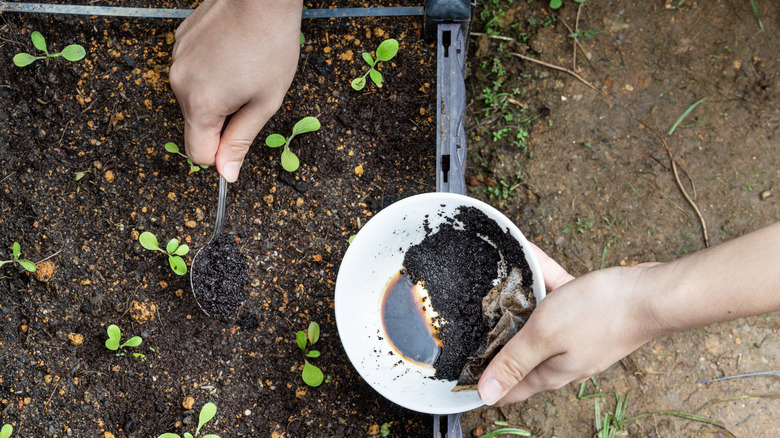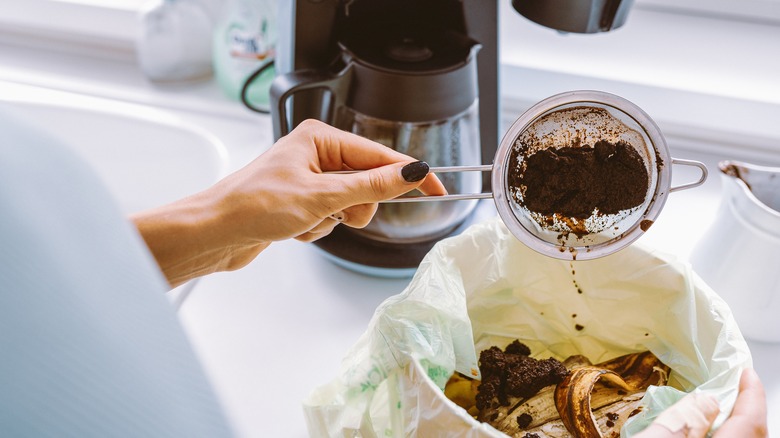What Most People Get Wrong About Using Coffee Grounds To Fertilize Tulips
You may have heard you can use up your brewed coffee grounds in the garden and you certainly can; they contain trace nutrients your plants need and make great compost that can benefit the soil and plants. They work well for just about any plant, but when working with tulips, there are a couple of things you should think about. An out-of-whack ratio of coffee grounds to soil can result in compacted soil that makes it harder for excess water to drain away, and fresh coffee grounds can temporarily change the soil acidity. Both of these issues can potentially be detrimental to tulips if they aren't dealt with promptly.
Tulips need well-draining neutral or slightly alkaline soil to thrive. Without the proper soil, you risk having unhappy tulips with subpar blooms. Give your plants the best chances by choosing the largest tulip bulbs, giving them sufficient drainage, and testing the soil pH to guarantee it's at the right level.
Too much coffee can compact the soil
Coffee drinkers know that too much coffee can be a bad thing, and the same rule applies for using brewed grounds in the garden. Coffee grounds have a fine texture that stick together easily when wet. If you apply a thick layer to the top of your soil, you risk the grounds sticking together and preventing water from seeping through. In this instance, your tulips may not receive enough moisture.
On the other hand, if you mix a lot of coffee grounds into the soil, it could form clumps underground. This could cause water to puddle up and hang around the roots, causing your tulips to become waterlogged. You can avoid this by mixing small amounts of coffee grounds into the top 2 or 3 inches of soil to ensure the small grounds get incorporated into the soil well. If you can only mix it into the top inch of soil, add it less often to prevent clumps from developing.
Potential acidity is a concern ... or is it?
Someone somewhere started the rumor that coffee grounds will turn the soil acidic. There's some truth to this, but it shouldn't be a problem in your garden unless you overdo it with the coffee grounds. Dry grounds are likely where this myth originated, but brewed grounds sit at a neutral pH of 6.5 to 6.8, which makes them of little concern to alkaline-loving plants like tulips. If they change the pH at all, it will be minuscule changes that won't last long enough to cause severe damage to your plants.
However, your tulips can be harmed by caffeine and mold. Applying too much freshly brewed grounds can leave behind caffeine residue. While caffeine makes humans spry, it has the opposite effect on plants and can stunt their growth — even stop germination entirely. Mold growing on moist grounds may infect your plants. You can avoid these issues by composting your coffee grounds first. Add them to the compost bin and let them sit for up to six months or however long is needed until your compost to be ready to use. Any nutrients in the grounds will be ready to use in the compost and will be safe for your plants. If your grounds were acidic, the decomposition process will make them neutral and safe for your garden.


